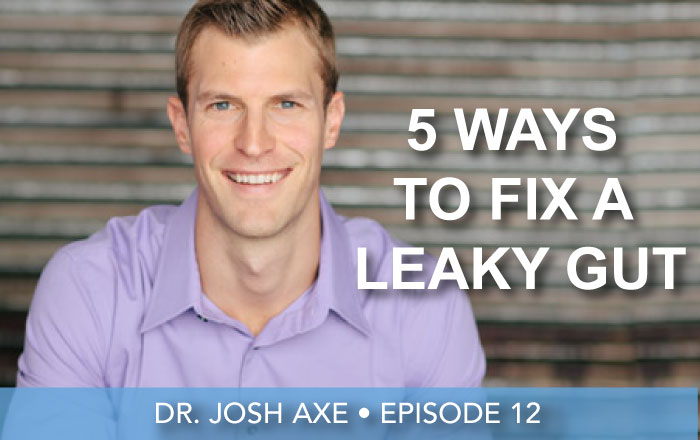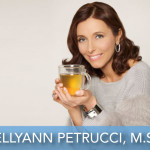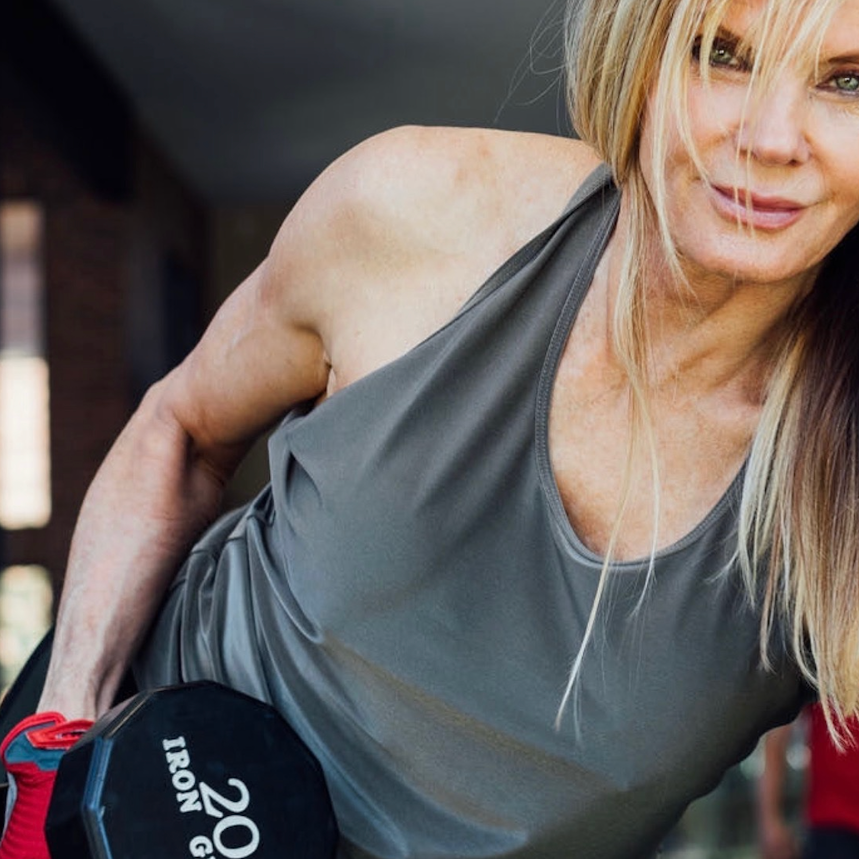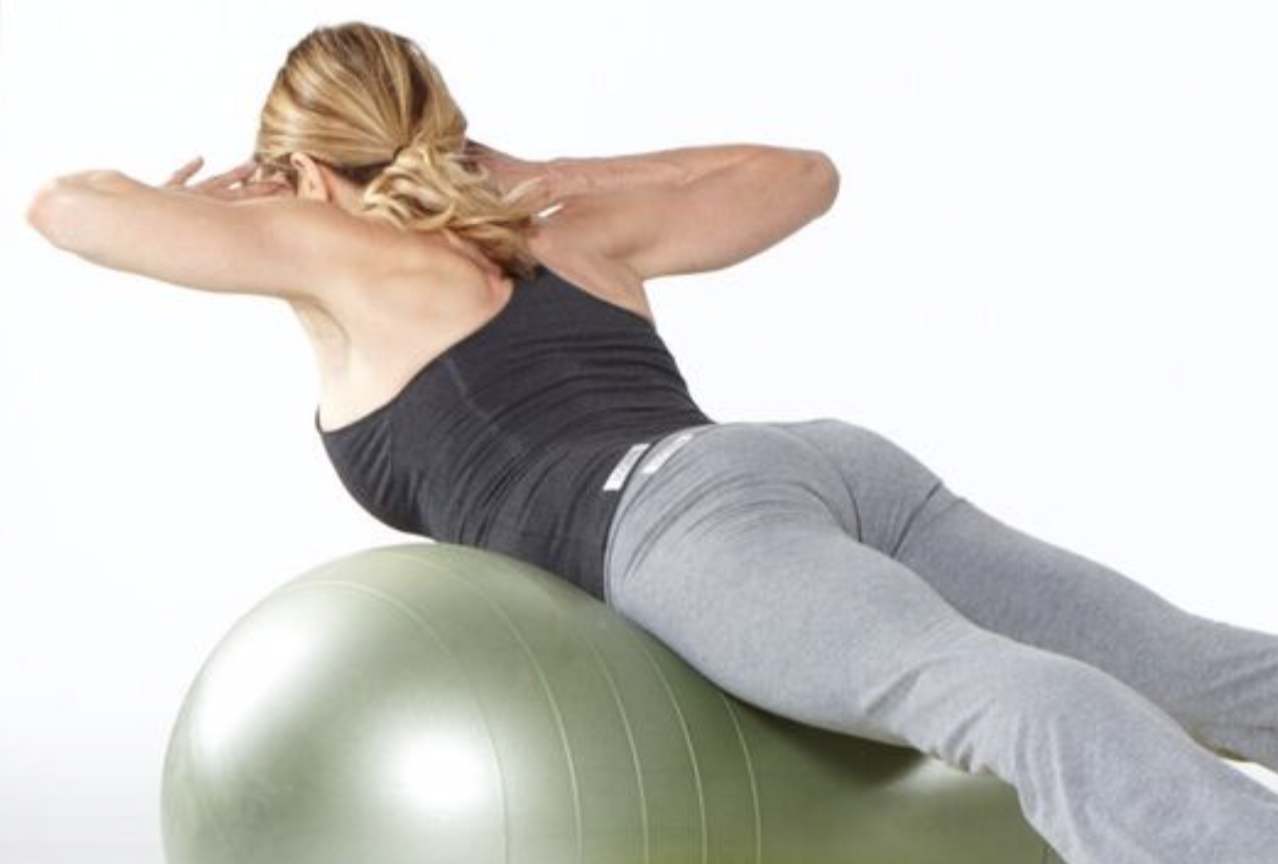Episode 12 | Dr. Josh Axe | 5 Ways To Heal Leaky Gut

LISTEN…CLICK PLAY!
Follow Along With The Transcript
Josh Axe: Hey, Kathy. Thanks for having me.
Kathy Smith: I was in your neck of the woods recently. I was in Nashville, and I have to say there’s a lot happening in that city. Fun times in Nashville, and I just want to know how you–I know you were voted at one point, one of the 20 sexiest guys or whatever in Nashville. And what I want to know, because it’s such a city to have so much fun, you must be very disciplined to have so much fun and still keep your sex appeal going, my darling. So, just to let you know, it’s a fun place and I can’t wait to get back there.
Josh Axe: Yeah, well, at this–actually, it’s funny because the time that magazine piece was written on the–it was like on the 20 Most Beautiful People in Nashville. I wasn’t married yet, and now I’m married and I have my beautiful wife, Chelsea, at my side. We try and stay fit and healthy together. Nashville’s a happening place. We’ve got so many great restaurants here, but the great news is there’s a lot of healthy options. So, even though we eat out on occasion here, when we do, we find a lot of healthy options. Like, last night we went to a Mexican place that does all non-GMO ingredients and organic, but we still go out and have fun around town. We just stick to some of the healthier dining places.
Kathy Smith:It makes sense. Ok, let’s get into it. Eat Dirt. I love the title. Where did you come up with it?
Josh Axe: Well, I was actually in the kitchen visiting my mom, and I have a unique story with my mom. It’s really what motivated and inspired me to become a physician. I’ll keep it short, but essentially about 22 years ago, my mom was diagnosed with cancer and the crazy thing was, Kathy, was that my mom was really kind of a fitness buff. In fact, she probably did some of your DVD series. She was really fit and active. In fact, she was my gym teacher in elementary school, and she was a swim instructor. So, she was active and fit but diagnosed with cancer.
At that time, our family lived in what I call the medical model, so we just did whatever the doctors told us to. So, she went and had chemotherapy, she had a masectomy and go really sick going through all that, but she came out in the end on top, and the doctors diagnosed her as being cancer-free and healthy.
Really, for the next 10 to 12 years after going through chemo, she was sicker than ever, just kept getting worse and worse and, then, finally diagnosed with cancer again. The next time, we followed an all-natural diet with her. She started juicing vegetables, doing blueberries, a lot of healthy supplements and turned her health around and was diagnosed as being cancer-free four months later.
This was a few years ago, but my mom, today, is so healthy. She eats at the farmer’s market. I tell her she should be one of the Vitamix ladies because she uses her Vitamix so much. She was in her kitchen–I was visiting. Down in Florida is where she lives now. My dad just retired from Ohio down to Florida. I was in the kitchen, and my mom had vegetables at the Farmer’s Market. She was just scrubbing them, and I said, “Mom, stop scrubbing those so hard.” I said, “Just eat some dirt.”
Actually, I had read a study not long before that talked about how there are things in our soil called soil-based organisms that actually contain good types of bacteria probiotics that actually help them improve our immune system. They actually talked about how when you, let’s say, pull a carrot out of the ground, even when you wash the dirt off with some water, you’ll still see there’s some brown specks imbedded in the carrot there or beets or other foods. Those are soil-based organisms, and studies have found they actually help you break down and digest the food you’re eating.
So, I said, “Mom, wash them, rinse them, but do not scrub the skin off them, because the skin and those little brown things are actually soil-based probiotics that are good for you. They’re going to help you digest your food and, so, that’s part of what made me call the book Eat Dirt is because we actually do need a little bit of dirt in our diet.
Kathy, the truth is, we have become far too clean as a society today, and actually a little bit of bacteria from the soil, and in our surroundings, is actually good for us. We found–actually, in my book, I go through a lot of different studies of children that grew up on farms are healthier than other children. People that have pets and dogs and cats have stronger immune systems, and there’s research on actually consuming probiotics from the soil like bacillus subtilis in supplement form and how it can boost our immune system, fight autoimmune disease, cancer and a number of other diseases today – especially digestive issues. So, that’s kind of how Eat Dirt was born.
Kathy Smith: It’s interesting. It sounds like a lot of the hand sanitizers as well as maybe the food and vegetable rinses that we were buying for a while there aren’t necessarily helping us and could be hurting us. Let’s say, you go to the farmer’s market, you buy some veggies. What do you do when you take them home? Do you wash them with water or how do you clean them off?
Josh Axe: My wife and I, basically what we do, we do a little mixture of just our water and apple cider vinegar and wash them off that way. The good organic acids that are found in vinegar are actually sort of naturally cleansing as well. So, that’s really what we do is we actually have typically a little spray bottle too of apple cider vinegar and that’s what we use on our produce. But, again, we don’t scrub the dirt off. We have a little bit of dirt.
Kathy Smith: Yeah, but let’s talk dirt because not all dirt is created equal.
Josh Axe: True.
Kathy Smith: I’ve been on the organic bandwagon forever. But we know soil and we have organic soil and, then, we have a lot of pesticides in our soil. Those are also not only in the food but they’re in the dirt. So, what are we going to do about that?
Josh Axe: I think in general, where you buy your food matters. I’m in Nashville. We have a farmer’s market in Franklin just south of here that I go to on a regular basis. We go down there and I talk to some of the farmers. I have, actually, a couple of Amish farmers we get a lot of our food from, and I’ve had conversations with them saying, “Hey, do you guys use pesticides and herbicides?” And they don’t. So, for me, I feel really good about–and, again, it’s one of those things where at some point you have to take somebody’s word for it, but for me, with the farmers that I buy from, I feel really good about it. So, in that case, I feel good about a little bit of that dirt versus if I’m buying from a conventional farm where I know they’ve been spraying chemicals, it’s not something that we want.
I want to mention something else, Kathy, that’s really interesting. I read an article. There was actually a professor from Columbia Medical School in New York City, and he said that one of the best things we can do for kids is roll them around on the New York subway if they live in New York. It was kind of surprising to a lot of people that he said that. The reason he was quoted saying that is that they went and tested the bacteria of the New York subway and they found 99.9% of it was not bad and not good. It was sort of in between. So, really, a lot of times we’re so scared of germs and bacteria and some of these things, but the truth is, it’s really what we’re adapted to.
I’ll give you an example. My in-laws just went to Mexico – to Cancun – for their 30th wedding anniversary and when they were there, they didn’t drink the water. Because if they would’ve, they would’ve gotten sick. But all the people there, they drink the water and they don’t get sick. It’s because they have an immunity to the water now because they’ve had small amounts of it over time. The same principle goes into something I talk about in my book.
I think, again, what you mentioned is absolutely true, that we want to be conscious of where our food comes from and the soil it was grown in. So, if you know it was healthy, organic soil – you’re at your farmer’s market and they say, “Yes, it’s not sprayed with chemicals,” then I think leaving a little dirt on there is good. If they say, “Well, yes, we do that,” then I don’t know if I would get their food in the first place. I would try and find somebody who follows more of those organic standards.
But jumping back to why these organisms are so beneficial–when I say, “Eat dirt,” I’m not just talking about dirt in the book. I’m also even talking about things like raw, local honey. In fact, raw, local honey contains over 200 microbes, which help support the immune response. And this why you may have heard, and our listeners may have heard, that we should consume local, raw honey during allergy season. But it’s not really just allergy season. We should be consuming, let’s say, a teaspoon or tablespoon a day year around if you have seasonal allergies, because when you get that pollen every day, you get that exposure to the pollen from your local area. That way, when spring and fall roll around and you are bombarded with large amounts of pollen, your body has built up a natural immunity. Just like people in Mexico have a natural immunity to the water there, we have a natural immunity, now, to the pollen in our air and things we’re exposed to.
And this is another reason why it’s so beneficial to spend more time outdoors, to walk barefoot and to eat local food. Eating those local microbes in the soil actually help you better break down your food and help you with exposures in your region.
Kathy Smith: Yeah, it makes such perfect sense. I know that through the years, I would see people that go into what I call mono meals. During the 80s, it was a brand muffin with a carton of yogurt and they go into one way of eating and they get very restrictive and very limited. Then, these were the people that are getting more illnesses and sick and whatever.
Then, you’d see somebody else, like when in Rome, do as the Romans, right? It’s like if you’re in Italy, go Italian. If you’re in Mexico, start to experiment with all the different types of food groups and different ethnic cooking and whatever. So, I love that.
I also want to mention that you have so much information on your website, so if anybody wants to delve a little deeper into–any of us–to check out the website. I also love this website called EWG, which is Environmental Working Group. They have guidelines and–I’m sure you’ve heard about this–but the Dirty Dozen and the Clean Fifteen. The Dirty Dozen are that every year, they rank what are the dirtiest vegetables and fruits on the list. This year happened to be strawberries and apples, which is kind of interesting. And what are the cleanest? The cleanest were avocados and corn.
So, in a way you can also use that to judge. Like, if you’re going to eat an avocado, it’s probably not as critical that you go organic if you can’t find one. If you’re going to eat a strawberry, definitely shy away from them unless you have an organic strawberry because they can have a lot of pesticides hiding in all those little crevices.
Going through this whole thing of what happens when these pesticides/the different foods hits your gut. Why don’t you walk us through? I know your book just goes in the direction and talks about this concept of leaky gut. It seems as if this has become emerging as the most significant, I would say, medical issue almost to this generation. It’s just you hear so much about it and how it’s linked to all kinds of diseases. So, could you talk about leaky gut a bit?
Josh Axe: Yeah, absolutely. Leaky gut, I believe, is the root cause of most illness in the world–well, at least, in America today. If you look at what Hippocrates said over 2000 years ago, “All disease begins in the gut.” I believe autoimmune disease, food sensitivities today, inflammatory bowel disease, even issues like autism, ADHD, Alzheimers, depression, adrenal fatigue, thyroid issues like Hashimoto’s thyroiditis, joint pain and arthritis, immunity issues, all of those start with the gut lining.
What happens in leaky gut, imagine your intestinal lining as a net. It’s essentially the barrier in between your intestines and your bloodstream. That net allows certain particles to get through – small vitamins and minerals – and it keeps out larger proteins and other things that should be sent through other areas of your body. What happens is if we have a lot of inflammation of the gut lining over time, imagine you get a tear in the net. It gets torn and, now, certain things pass through in the bloodstream that should never get in there. What that’s going to do is cause an immune response or an inflammatory response by your bod, and it will cause inflammation systemwide.
If that continues to happen over time, it can target and cause issues in certain places of your body. For some people, it’s the thyroid causing Hashimoto’s thyroiditis. For others, it can be the joints causing rheumatoid arthritis. For others, it can be the sinuses, it can be the gut or the colon, it can be many different areas of the body. So, really, leaky gut is the root cause of many diseases today but especially autoimmune disease if it’s not corrected early on.
Kathy Smith: What causes these tears or these holes in the net? What causes them to occur?
Josh Axe: Sure. There are several things that can really start to cause those problems. One of the biggest ones is just really anything that causes gut inflammation. Too many inflammatory fats and oils, too many Omega-6 fats, hydrogenated oils, fast foods.
Another big one is gluten. So, gluten in certain grains will cause intestinal inflammation. Sugar will cause inflammation because it will feed off yeast. Yeast will overgrow within the gut and they actually create their own poisons which start to actually eat through the gut lining.
The biggest thing, Kathy, is antibiotics – prescription antibiotic drugs will absolutely wreck the digestive tract. So, that’s a big thing. I know for myself as a kid and for many others, a lot of us took antibiotics in the past that really harmed our digestive tracts.
Then, it doesn’t just end there, Kathy. You mentioned this earlier. It’s the hand sanitizers. It’s the triclosan in our hand soap. It’s in our shampoos today. Actually, even our drinking water has chloride and fluoride. Fluoride kills off good bacteria in the gut. So, we are exposed to antibiotics in pretty much everywhere.
In fact, here’s another surprising fact. Eighty percent of the antibiotics given today are not given to humans, they’re given to our livestock. So, the cows and chickens, we consume their meat and their dairy products. In turn, we’re getting more antibiotic residue in our body. So, that’s really the biggest problem is all the chemicals in our food supply, all of the antibiotics and all of the sanitizers that are in our personal care products and household products.
Kathy Smith: I love the name you have. It’s in your book and on your blogs, but you call them “The gut grenades”. You imagine these A bombs, these atomic bombs going off in your gut and destroying the natural good bacteria. So, when you get out of balance, let’s just say that you would imagine that if you live in the United States and you follow a typical diet. It doesn’t even have to be a fast food diet, but if you live in the United States and you haven’t been conscious of this, you probably have some issues with your gut. What are the steps to start to repair, heal and get this great gut environment so that your digestion works for you instead of against you?
Josh Axe: Sure. Well, I think the most important step to start off with is getting the right foods in our diet and to start to build up that good bacteria. I would say the number one food, Kathy, that people can start to consume that’s going to repair the gut lining itself is going to bone broth. So, I would start to get bone broth on a regular basis – chicken broth, beef broth.
There’s actually a new product out that’s incredible. It’s called Bone Broth Protein. It’s a company I’m a big fan of called Ancient Nutrition. You can just go to Amazon.com right now and look up Bone Broth Protein. It’s actually just bone broth in powder form. You can add it to smoothies and that type of thing. So, anyway, that’s the number one food.
Let me jump back and also say there are certain things that I would remove. I’d remove gluten, I’d remove processed grains, sugar, hydrogenated oils, all those things we talk about.
So, jumping back to the top foods, bone broth number one. Number two, fermented vegetables like Sauer kraut and kimchi are fantastic. They’re full of a probiotic called lactobacillus plantarum, which is great for nourishing the digestive tract.
After that – fermented vegetables – I would say getting more Omega-3 fatty acids. Consuming wild-caught salmon is one of the best things we can do on a regular basis.
Coconut products – one of the great things about coconuts is they’re mildly anti-microbial and very easy to digest. So, coconut oil, coconut milk is another good thing to use.
Then, I would say cooked vegetables. The ideal meal, Kathy, for someone with leaky gut is consuming a chicken vegetable broth soup. So, chicken broth chicken and, then, carrots, celery, onion, lots of herbs, some ginger in there. If somebody can follow a diet where they’re doing a lot of, let’s say, meals in the crockpot, it’s probably the most nourishing thing for the gut.
Think about this. I know that my mom, when I was a kid, any time I got sick, she would have me eat chicken soup and drink ginger ale. The funny thing is, is the chicken soup she got had so much sodium and white pasta in it that it was not really probably good for me. It probably actually kept me sick a week longer. The ginger ale was actually soda.
She actually got that from, probably, my great-grandmother who actually when somebody was sick, gave our family ginger herbal tea and, then, did real chicken soup made in a stock pot with chicken bones and, again, lots of veggies and herbs. There’s actually medical studies showing that chicken broth helps repair the gut lining, which is where 70% of the immune system is. So, when you’re sick, it helps strengthen your immune system. It works in healing leaky gut in a very similar way.
So, I would say, those are the best foods for leaky gut, best diet. Surprisingly, doing a lot of raw foods–you’ve got to be really careful if you have leaky gut. Raw vegetables can be hard for many to digest, especially raw cruciferous. I think people should eat a lot of vegetables. I just think if they have leaky gut, they want to do more cooked vegetables and, then, maybe some raw greens and salads and things on occasion.
The best supplements, number one, is a probiotics supplement. I think getting more probiotics is important – probably 50 billion units daily. Taking a digestive enzymes supplement can be really good. Certain herbs that are popular in Chinese medicine, such as licorice root extract tends to be, actually, a very good herb people can take as well. Then, again, I mentioned this earlier, collagen protein and, then also, bone broth protein is great as well. So, collagen and bone broth supplements are also beneficial along with the probiotics, enzymes and licorice root. I would say those are the biggest things.
One other thought, too. Reducing stress is so important. A lot of people don’t realize how much stress causes yeast overgrowth in the body and how hard that is on our digestive system.
For that reason, one of the things I’ve recommended to my patients for years, Kathy, is doing two things. One thing is doing a spiritual triathlon in the morning. I spend the first five minutes every morning getting grateful or in praise, praising God or saying everything I’m grateful for. The next five minutes, I usually spend reading a personal growth book or a scripture or something. And I spend the next five minutes in prayer or meditation, really thinking about how I’m going to apply these principles to my life, what my day’s going to look like. So, starting off with a spiritual triathlon is such a great way to reduce stress.
Also, getting outside, getting active, exercise – things like yoga, bar class is fantastic. Then, also, taking a healing bath at night. I have my patients do one cup of Epsom salts and adding in about 10 to 20 drops of essential oils, such as lavender, chamomile, maybe some holy basil, oils like that in the tub and soaking with Epsom salts, which are loaded with magnesium, known as the relaxation mineral. I think really doing all of those practices are things that are really going to help gut health.
Kathy Smith: So, it sounds like it’s, obviously, a lifestyle approach, and you have to start somewhere. So, if you’re feeling and overwhelmed with all these recommendations, remember that baby steps can get you there; although, everything that you’re suggesting, which is fabulous information, it’s not only going to heal your gut, but it’s also going to heal your brain, your heart, your relationships, your life.
It’s all interconnected, and I think the more and the longer I’m in this business, what you see is that there’s nothing that we can do in isolation. Even when we work our bodies, we used work out and we used to isolate our biceps and isolate our triceps and, then, we moved into functional fitness because we realized the body works as a unit, and if you want to pick up a bag of groceries or your children or whatever, you have to use your legs and your glutes and your core and your arms.
The same thing, it just sounds like what you’re saying is true of the human body, that if you go to gut–and we’re focusing on gut right now–but this is maybe this stepping off point for healing so many other things in your body. That’s what I love about what you do in your book and how you approach this, because it is centralized in the gut. And people can get results pretty quickly. So, how long would you say if you started with your plan would people start noticing a shift in their thinking and their energy and their weight and things like that?
Josh Axe: Well, Kathy, I think a lot of times it takes about three days and people can start seeing changes. If somebody wants to see an extreme makeover in their body–if somebody starts applying this stuff and they follow it for three months, after three months, you can be a totally different person.
To answer your question fully, I think, two weeks. After two weeks, people will really notice some significant changes happening in their body.
Kathy Smith: So, if you have one last, parting thought or maybe even the direction you’re going in the next year or two, where do you see all of this going with gut health? What do you think? You gave us a lot of information today and a lot to work on, but where do you think the next stage of this is going to be?
Josh Axe: Well, Kathy, I think that we’re just scratching the surface on gut health. If you look at a lot of recent books that are published–and I know a lot of the new supplement brands coming out today. There’s a new brand that I think is really good. It’s called ProBiome Rx. There are some others that are coming out really targeting gut health. I think gut health is going to really be at the forefront. We’re going to continue to hear more and more about leaky gut and it being the root of autoimmune disease and a number of other health problems today.
So, what happens, Kathy–I see this all the time–is that people go into their doctors today and, let’s say, with a thyroid issue, and they’re diagnosed with hypothyroidism or Hashimoto’s disease. The doctors will put them on Synthroid, maybe even a holistic doctor will put them on Armour Thyroid and maybe an herb or supplement or two and that’s kind of it. But they’re not getting to the root cause of disease today, which really begins in the gut.
I’ve worked with thousands of patients with this. When they come in with autoimmune issues or thyroid issues specifically, I don’t treat their thyroid. Now, I do give them nutrients that support thyroid health such as thiamine and selenium and certain adaptagenic herbs which are effective.
But the first thing I do is I really work on repairing the gut. Once that gut is repaired, then the thyroid can heal. It will stop being bombarded, the inflammation will calm down in the body. So, that’s really the key. My big hope for everyone, Kathy, is that doctors and, both, patients, they really start looking to treating the root cause of the disease, not just managing the symptoms.
Kathy Smith: Brilliant. Well, I could talk forever on this subject because I think you’re absolutely right. This is the root of so many problems. So, definitely, if you want more information about the gut, you have to go to Dr. Axe’s website. He’s got a blog, he’s got a podcast, obviously, he’s got his book, Eat Dirt.
Just as a reminder, it’s DrAxe.com. Check it out and go buy his latest book. Thank you so much, Josh, for being here. It was such a pleasure.
Josh Axe: Thanks for having me, Kathy.









